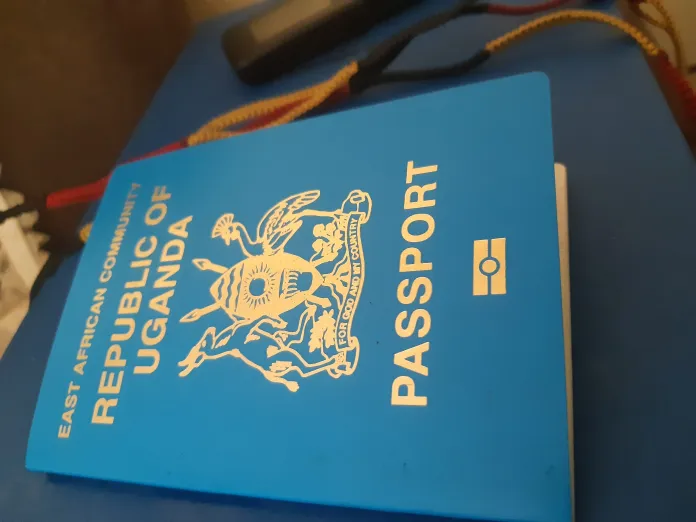#OutToLunch Passport office must benchmark the driver’s permit renewal system
By Denis Jjuuko
Sometime back, the countries that form the region known as East Africa decided that they needed to take the countries back to having passports that have the region’s name on it. They went ahead and even set a deadline which was extended in Uganda to 4 April 2022.
Last week, the responsible body for Uganda, the Ministry of Internal Affairs, issued a statement that after that deadline, you won’t be able to leave the country on the old passport. If you come in with an old one, fine, but you won’t go back without a new one. A new passport costs Shs250,000 and if you want it made faster, you top it up with Shs150,000 to make it Shs400,000 (a sign perhaps of a deliberately slow system).
That is not, however, the most bizarre thing about this passport renewal. If you have a valid Ugandan passport and you want the UN-blue colored one, you will have to do the process from zero. Imagine you have a valid passport but you are being asked to prove that you are a Ugandan.
How do you prove that you are a Ugandan according to the Ministry of Internal Affairs? You must know the name of your father and mother’s grandparents! For my case, my father’s grandfather even had one name. Before formal education, Christianity and Islam took root in this part of the world, it was not uncommon for a child to be given only one name!
But how will Ministry of Internal Affairs prove that the guy I indicate as my father’s grandfather is actually the one and even existed? My great grandfather died long before Uganda was created as we know it. My grandfather on my father’s side died shortly after Uganda had received independence.
But by asking me for my parents’ national ID copies and then going on to ask who my relatives are and proving that I speak at least one local language yet I have a valid government of Uganda passport proves that the Ministry of Internal Affairs doesn’t believe in its own documents.
My national ID issued by the same ministry is still a valid government of Uganda document. What is so difficult in just checking their database and align it with whatever information they need for the new passport? What is the purpose of the data in the national ID system if it can’t be used to renew passports?
In Ghana, your national ID is your passport and you can use it in all International Civil Aviation Organisation (ICAO) compliant countries and 44,000 airports worldwide. I don’t think Ghana did anything special, they must just have applied and ICAO granted the permission. Maybe they added a chip where visas and all these things can be stored. With blockchain technology and other innovations, paper-based passports should be a thing of the past.
But what makes a passport so special that the process must be repeated for those renewing? The Ministry of Internal Affairs simply needs to walk — yes, it is a walkable distance from their offices — to Nasser Road. On arrival at the start of Nasser Road, they should ask for Uganda Railways headquarters. They will see a government agency there that is responsible for renewing driving permits. It is called Uganda Driving License System (UDLS).
They can do a benchmarking study on how they created a fast system through which Ugandans renew their driver’s licenses. You walk in and in under 30 minutes you are out with your renewed license. What is so difficult for the Ministry of Internal Affairs to create such a system for passport renewal? How difficult is it for the passport office to ask UDLS to give them the same system and procedure to use? They don’t even need to ask anyway. The director responsible for passports simply needs to go and renew their driver’s license and see how things work.
Why should they even be a deadline for renewing a passport anyway? Simply renew those that are expiring. By creating deadlines while deploying a very slow system that requires one to know a name of an elder in the village or speak a local language (anyone can learn a local language anyway) and many millennials growing up in Kampala don’t even know their mother’s tongue is 19th century stuff.
The writer is a communication and visibility consultant. djjuuko@gmail.com










